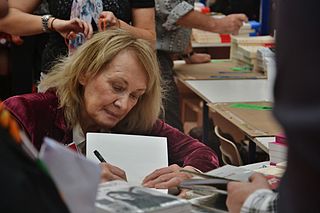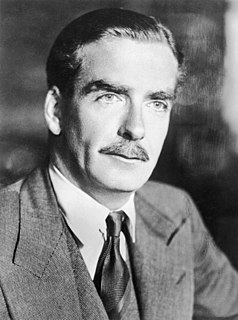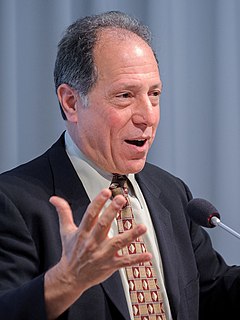A Quote by Romesh Gunesekera
Novels are the means by which we can escape the moment we are imprisoned in, but at the same time, the roots of a novel are in the world in which it is written. We write, and we read, to understand the world we live in.
Related Quotes
If you wait until you got time to write a novel, or time to write a story, or time to read the hundred thousands of books you should have already read - if you wait for the time, you will never do it. ‘Cause there ain’t no time; world don’t want you to do that. World wants you to go to the zoo and eat cotton candy, preferably seven days a week.
I don't know how to write a novel in the world of cellphones. I don't know how to write a novel in the world of Google, in which all factual information is available to all characters. So I have to stand on my head to contrive a plot in which the characters lose their cellphone and are separated from technology.
Total oblivion is the fate of almost everything in this world. I'm very likely to suffer that same fate; my work will probably not be remembered, and if any of it is, if any of those novels is fated to be one of those novels that is still being read 50 or 100 years after it was written, I've probably already written it.
Naturally I feel no shame in writing these things because of the time which separates the moment when they are written--when only I can see them--from the moment when they will be read by other people, a moment which I feel will never come. By then I could have had an accident or died; a war or a revolution could have broken out. This delay makes it possible for me to write today, in the same way I used to lie in the scorching sun for a whole day at sixteen, or make love wihout contraceptives at twenty: without thinking about the consequences
The free world has need that its foreign policies should fairly measure the realities of the world in which we live. There are certain principles to which we hold: the sanctity of treaties, good faith between nations, the interdependence of peoples from which no country, however powerful, can altogether escape.
To read fiction means to play a game by which we give sense to the immensity of things that happened, are happening, or will happen in the actual world. By reading narrative, we escape the anxiety that attacks us when we try to say something true about the world. This is the consoling function of narrative — the reason people tell stories, and have told stories from the beginning of time.
Such is the moral construction of the world that no national crime passes unpunished in the long run... Were present oppressors to reflect on the same truth, they would spare to their own countries the penalties on their present wrongs which will be inflicted on them in future times. The seeds of hatred and revenge which they sow with a large hand will not fail to produce their fruits in time. Like their brother robbers on the highway, they suppose the escape of the moment a final escape and deem infamy and future risk countervailed by present gain.
I have no liking for novels or stories - none in the world; and so, whenever I read one - which is not oftener than once in two years, and even in these same cases I seldom read beyond the middle of the book - my distaste for the vehicle always taints my judgment of the literature itself, as a matter of course; and also of course makes my verdict valuless. Are you saying "You have written stories yourself." Quite true: but the fact that an Indian likes to scalp people is no evidence that he likes to be scalped.
Autonomy means women defining themselves and the values by which they will live, and beginning to think of institutional arrangements which will order their environment in line with their needs.... Autonomy means moving out from a world in which one is born to marginality, to a past without meaning, and a future determined by others--into a world in which one acts and chooses, aware of a meaningful past and free to shape one's future.
Guys constantly talk about pornography in two ways: as revenge and as reassurance. When you live in a world in which beautiful, sexy women are all around you, in the same classes, on the same athletic field, competing for the same jobs, then the pornographic world - the world in which women thrill to male sexual desire - reassures men that although they may feel "one down," they're still entitled to women's bodies.
There's still a part of me that thinks I have to write a really good novel. I'm not trying to say I'm not happy with the novels I've written in the past. But it always feels to me like there's another one that I have to write that will really say what I want to say, and really paint this world that I can see hazily in my head.
I am at a loss to understand why people hold Miss Austen's novels at so high a rate, which seem to me vulgar in tone, sterile in artistic invention, imprisoned in their wretched conventions of English society, without genius, wit, or knowledge of the world. Never was life so pinched and narrow. ... All that interests in any character [is this]: has he (or she) the money to marry with? ... Suicide is more respectable.



































